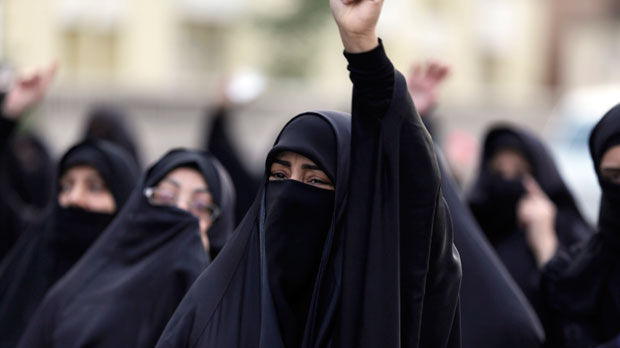On Tuesday September 26th, Saudi Arabia, announced in a policy change that it will allow women to drive. However, this move, broadcast simultaneously on state television and in Washington D.C. will not take effect until June of 2018. While several United Nations Human Rights Experts welcomed the announcement and praised the activists who helped bring about the change, they stressed that this measure should be just the first step towards advancing the cause of women’s equality in the kingdom. A statement made by Kamala Chandrakirana, the Chair-Rapporteur of the Working Group on the issue of discrimination against women in law and in practice, highlighted this idea. She stated: “The end of the driving ban should now be complemented by similar measures ending other restrictions imposed, inter alia, by the male guardianship system, which effectively treats women as dependent minors as well as other discriminatory legislation violating women’s right to equality.”
There is a long history of women struggling for their rights in Saudi Arabia. In particular, women’s rights activists have launched many protests against the country’s customary ban on women driving. One of the earliest protests occurred in November of 1990. 47 Saudi women attempted to drive a convoy through the streets of Riyadh demonstrating their opposition to, what was then, a customary ban on women driving. The women were stopped by police and taken into custody. They were released after their male guardians signed paperwork indicating that the women would not attempt to drive again. Many of these women were suspended or fired from their jobs. As a result of the protest, the Council of Senior Scholars issued a fatwa in support of the customary ban on the ground that women driving could lead women to mix with unrelated men and ultimately bring about “social chaos.” Following this, then interior minister, Nayef bin Abdul-Aziz Al Saud released a decree politically supporting the fatwa and codifying the longstanding ban.
Since that act of protest, Saudi women have come together to fight for their right to drive. For example, Wajeha al-Huwaider, in 2008 uploaded a YouTube video of herself driving on International Women’s Day. Then in 2011, in the aftermath of the Arab Spring and social media’s power to spread democratic ideals, women driving activists created the Women2Drive campaign. Manal Al-Sharif soon became the face of the movement after she posted a video she took of herself driving that resulted in her spending 10 days in prison. Her example led many other women to participate, and several experienced the same treatment as the 1990 protesters: police stopped many of the women and detained them; the women were only released after their guardians signed pledges stating that they would not allow the women to drive.
Activists felt their campaign could gain momentum when, in 2013, Sheikh Abdulatif Al al-Sheikh stated that “Islamic sharia does not have a text forbidding women driving.” Al-Sheikh’s words carried particular weight because of his status as the head of Saudi Arabia’s “religious police.” The religious police’s mandate was to enforce public morals according to a strict interpretation of Sharia. Among those they targeted were women who defied the ban on driving. Despite his statement, however, Al-Sheikh stressed that he did not create policy; he simply enforced the rules of the king.
Now that the policy is set to change, Al-Sheikh will be responsible for adhering to the new decree and respecting women’s new ability to drive. However, this change will not occur until June 2018, and it appears that until then officials will be tasked with ensuring that the status quo remains intact. Indeed, some women activists have reported that they are being forced to remain silent, having received calls instructing them not to comment on the development or the government would take unspecified “procedures” against them. They speculate that such calls occurred because the Saudi government is determined not to be seen as rewarding the efforts of activists. Additionally officials recently penalized a woman for unspecified traffic violations, stressing that all woman should wait until the ban is officially lifted next summer before they take to the roads.
The government’s intense efforts to maintain existing societal conditions, plays into the larger struggle that women in the Kingdom must still fight to overcome: the system of male guardianship. Under this system, Saudi women are treated as legal minors, while their male guardian, usually a husband or father, and sometimes a brother or son, are empowered to make critical decisions for them. These decisions include obtaining a passport, traveling outside the country, being released from prison, and marrying, among others. Furthermore the guardianship system frequently requires victims of domestic abuse to obtain their guardian’s permission to file a criminal complaint, even when the complaint is against the guardian. This demeaning structure affects women at every level of socioeconomic status.
According to a report on the guardianship system released by Human Rights Watch, “Even where permission from a male guardian is not mandatory or even stipulated under the government’s own guidelines, some officials will ask for it, since the overarching system in place in the kingdom transfers virtually all decision-making power to a woman’s guardian.” Because of the structural nature of this system, government officials have that, “the kingdom needed to wait for society to accept the notion of women’s rights before the government could reform laws and policies in this area.” However the continued enforcement of the guardianship system only further cements the societal misconception of female inferiority.
While this development is a positive step towards curtailing the grip the guardianship system holds over women, more progress will be necessary before women and men are equal. The Saudi government must end the guardianship system and deconstruct the societal norms that promote female inferiority. Furthermore the Saudi government must allow woman to drive, and it should implement this new policy as soon as possible. Saudi women have waited long enough.
Emily Stone is an Advocacy Intern at ADHRB.





